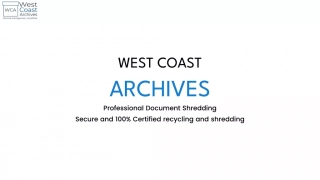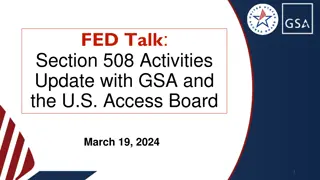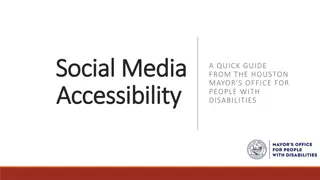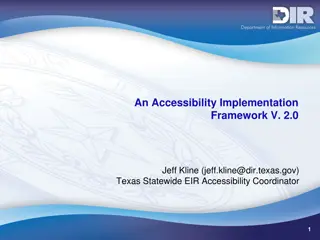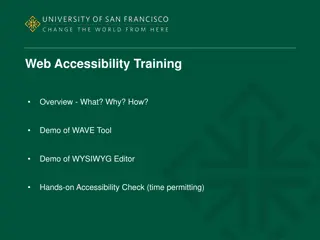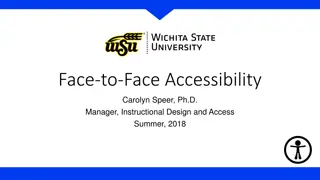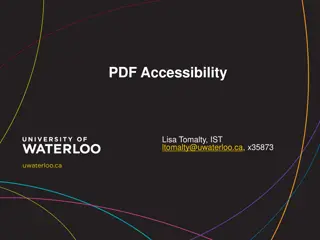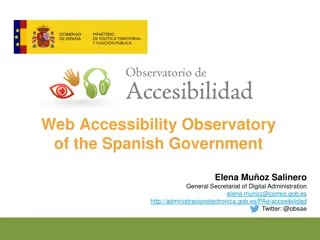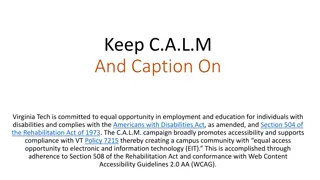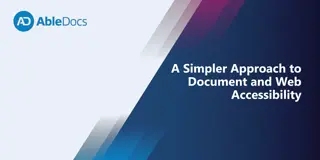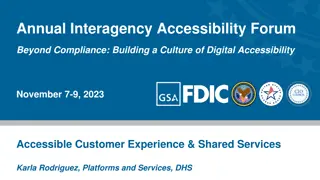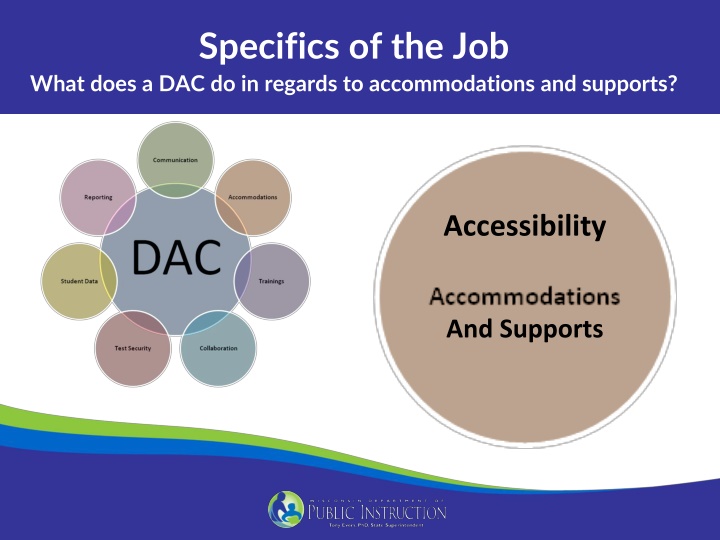
Accommodations and Supports for Students in Educational Assessments
Ensuring equitable access to educational assessments through accommodations and supports for students with disabilities, English learners, and those in unique situations. Learn about the responsibilities of DACs and the individualized support provided for different student needs.
Download Presentation

Please find below an Image/Link to download the presentation.
The content on the website is provided AS IS for your information and personal use only. It may not be sold, licensed, or shared on other websites without obtaining consent from the author. If you encounter any issues during the download, it is possible that the publisher has removed the file from their server.
You are allowed to download the files provided on this website for personal or commercial use, subject to the condition that they are used lawfully. All files are the property of their respective owners.
The content on the website is provided AS IS for your information and personal use only. It may not be sold, licensed, or shared on other websites without obtaining consent from the author.
E N D
Presentation Transcript
Specifics of the Job What does a DAC do in regards to accommodations and supports? Accessibility And Supports
Accessibility DACs are responsible for ensuring allowable accessibility options are understood for each assessment (by all district and school staff - administrators and educators) Accessibility options or Accommodations/supports provide equitable access to grade-level content are intended to reduce or eliminate the effects of a student s disability or level of language acquisition; they do not reduce learning expectations must be consistent for classroom instruction, classroom assessments, and district and state assessments Each assessment may have unique accessibility policies. Some accessibility options that are appropriate for instructional use, may not be appropriate for use on a standardized assessment Please note: There are no exemptions or waivers for students with disabilities, regardless of the nature or severity of the disability Individualized Education Plan (IEP) or 504 Plan teams determine the appropriate manner for student with disabilities to participate in statewide assessment; teams must document which test each student will participate in and which accommodations/supports (if any) the student should be given
Accommodations and Supports for ELs ELs are administered all assessments that are part of the WSAS for their grade. The WSAS consists of the Wisconsin Forward Exam, Aspire, The ACT Plus Writing, and WorkKeys. In addition, all ELs are administered the ACCESS for ELLs annually to monitor their growth towards English proficiency. ELs with significant cognitive disabilities participate in the alternate assessment, DLM, and the Alternate ACCESS For ELLs ELs new in the country (less than 12 cumulative months) are: permitted a one-time exemption on the Reading/ELA portion of the state content assessment (ACCESS testing counts for their participation) expected to take all other assessments with or without accommodations/supports (mathematics, science, social studies, etc.) Always view the assessment web pages to determine what is or is not an allowable EL accommodation/support on a specific assessment. Ensure that supports for ELs are individualized based on each student s fluency. The goal is to allow ELs to practice their English skills and demonstrate what they can do, and excessive supports can hinder students. Ensure that ELs are familiar with the supports, and have practice using them prior to test-day.
Accommodations for Students in Unique Situations Some students may not have an IEP or 504 plan, but due to unique circumstances at the time of testing may need additional support. These students may be able to demonstrate their learning more accurately through the use of accommodations on an as needed basis only. In these unique cases, please call OSA at (608) 267-1072 Examples of unique circumstances: a student with a broken arm may need a scribe a student who forgot to wear eyeglasses may need a visual magnification device
Request for Accommodations Occasionally a student requires an accommodation that is not on an assessment s list of allowable accommodations In this situation: Contact the assessment program manager for the specific assessment to discuss options. Some assessments have a Request for Accommodation Form that may be submitted for review by OSA staff and/or testing vendor. If the request is approved, the student may use the accommodation.
Documenting Accommodations and Supports All accommodations and supports must be documented in a students IEP or 504 plan. If a student has an accommodation listed on the IEP or 504 plan, it must be offered to them at the time of testing. Each assessment has a different process for uploading the appropriate accessibility options for an individual student or groups of students. It is the districts responsibility to ensure that all students have the appropriate accessibility settings activated and made available at the time of testing.
Monitoring the Use of Accommodations and Supports It is the DAC s responsibility to ensure that the administration of accommodations and supports: follow each assessments policies and procedures are administered with fidelity do not invalidate a students test results do not violate test security policies and adhere to a students IEP/504 or language plan
Test Security Considerations with the Use of Accommodations and Supports Test security must be maintained at all times when offering accommodations and supports. DACs will need to consider: Accommodations or supports that require one-to-one administrations or special settings Materials that need to be secured/destroyed before or after use Materials that need to be checked-in or out from a secure location


